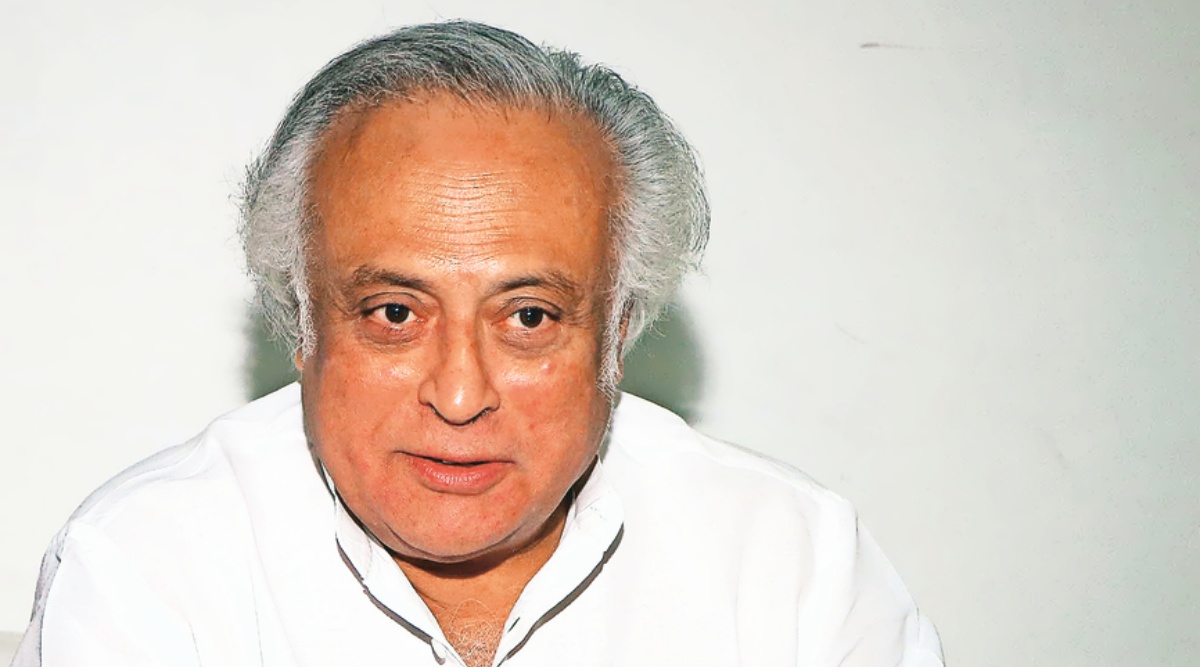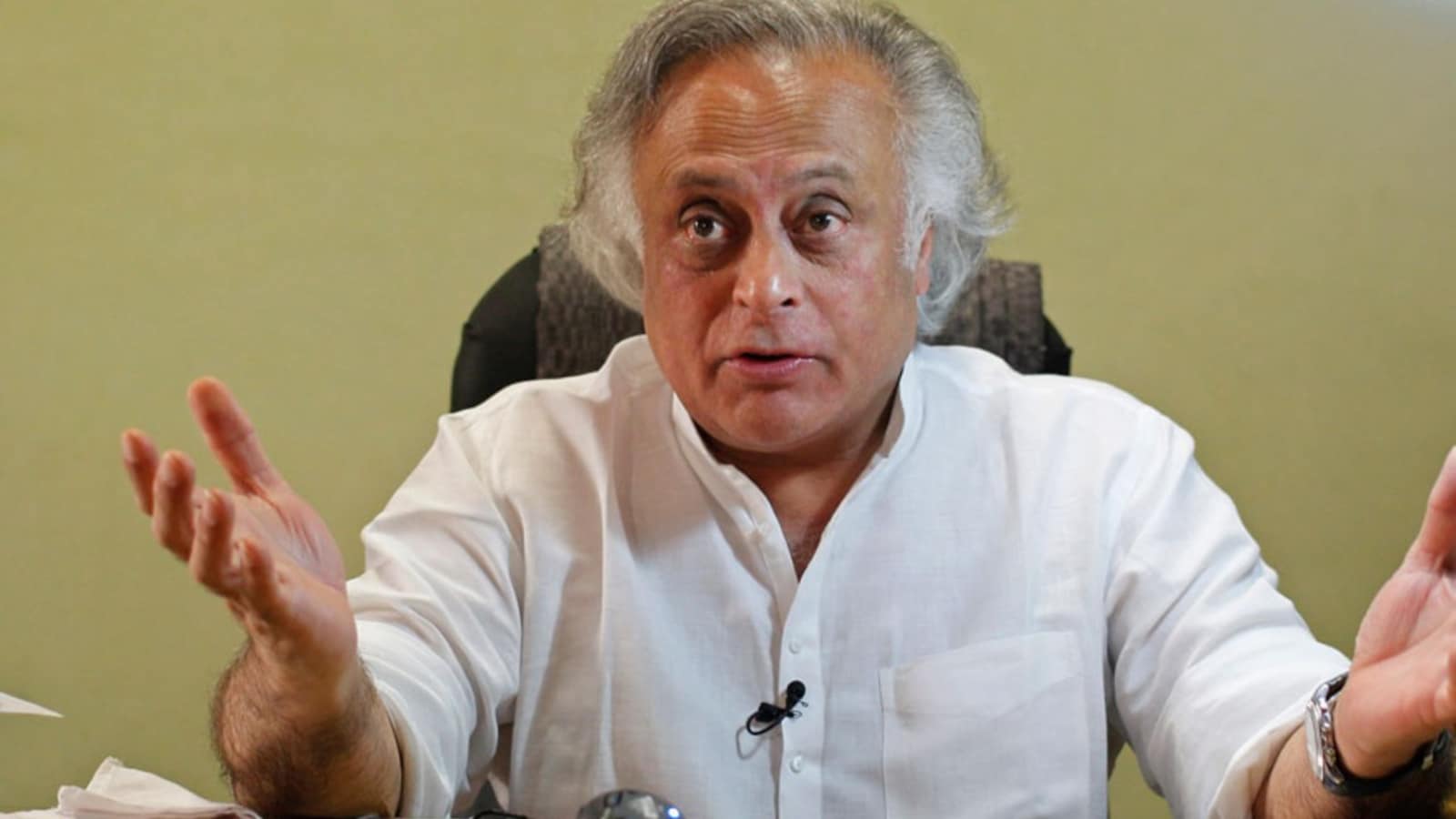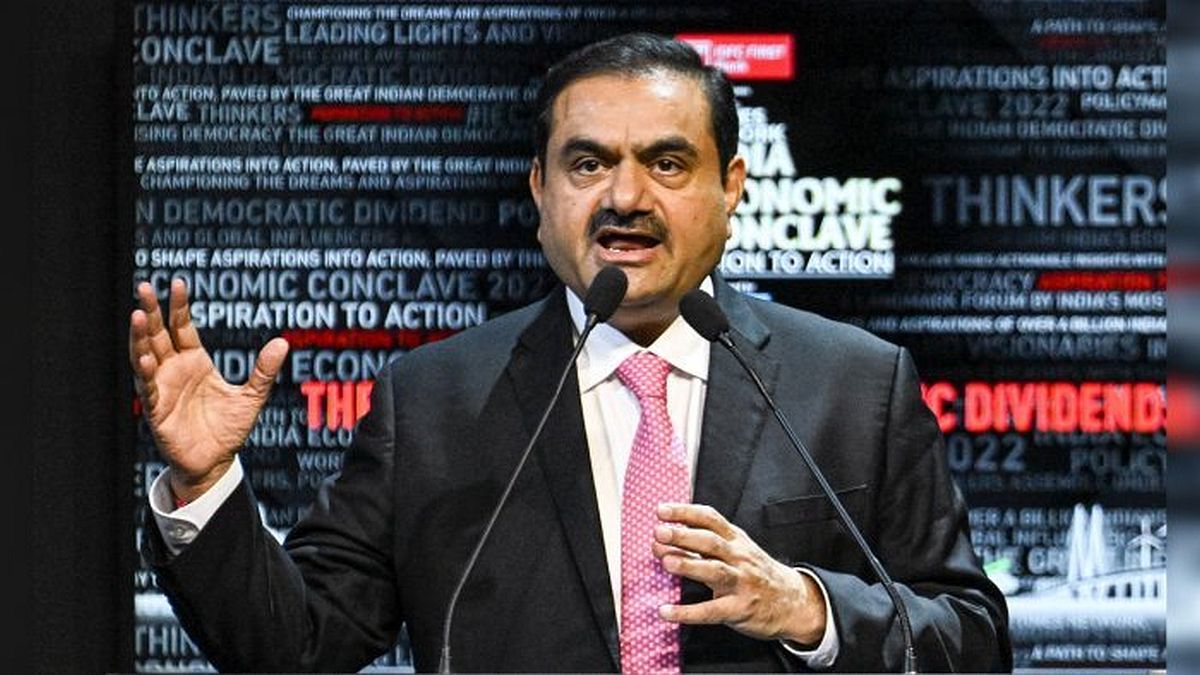Adani Group Faces Backlash As Government Plans To Hand Over India’s Food Grain Logistics, Alleges Congress.
According to Congress national secretary Jairam Ramesh, as part of their "Hum Adani ke Hain Kaun" campaign, on Thursday, the party asked Prime Minister Narendra Modi about the "hard work" the Modi government brought into "handing over" India's food grain logistics to the Adani Group.

Adani Group Faces Backlash as Government Plans to Hand Over India’s Food Grain Logistics, Alleges Congress.
With approximately 22 million workers, the Indian logistics sector is regarded as the foundation of the nation’s economy. The industry is anticipated to develop at a compound annual growth rate of 15.5% due to the growth of e-commerce and government initiatives like Made in India and Digital India, having a substantial impact on the GDP of the nation.
Recent plans by the Indian government to transfer control of the nation’s food grain logistics to the Adani Company have prompted debate and accusations of corruption. The Bharatiya Janata Party, the ruling party led by Prime Minister Narendra Modi, has been accused of supporting the business giant by the opposition Congress party (BJP). We will examine the specifics of the incident and any potential repercussions in this piece.
Congress’s Allegations

A “plot” to “give over” India’s food grain logistics to the Adani Group, according to the Congress, was only momentarily thwarted by the farmers’ protests that resulted in the repeal of three farm laws.
Weeks after Adani Group stock prices plummeted following a slew of claims, including fraudulent transactions and share-price manipulation, from US-based short seller Hindenburg Research, Congress has persisted in its criticism of the administration.
The Gautam Adani-led organization has denied the accusations, claiming that it complies with all legal and disclosure obligations. According to Congress national secretary Jairam Ramesh, as part of their “Hum Adani ke Hain Kaun” campaign, on Thursday, the party asked Prime Minister Narendra Modi about the “hard work” the Modi government brought into “handing over” India’s food grain logistics to the Adani Group.
Prime Minister Modi and Anthony Albanese attended an Australia-India Test cricket match in Ahmedabad, prompting Ramesh to tweet, “Hum Adani ki Hain Kaun’s introduction to a quarter century of probing inquiries is a fitting occasion for a lap of honour around the stadium he had named after himself during his lifetime.
He claimed that despite farmers’ protests in 2020–21 forcing the government to drop the “black farm legislation,” the “plot” appears to have only been momentarily thwarted.
Ramesh asserted that the Gujarat High Court ruling, which favoured Adani Ports and SEZ over the government-owned Central Warehousing Corporation (CWC), was overturned by the Supreme Court of India on October 13, 2022, stating that the ruling was “not sustainable in law”.
According to him, the organization, which was established in 1957 to assist India’s food storage needs, had 55 lakh tonnes of food grains in 2021–2022. His accusation that the Ministry of Commerce and Industry “had assisted Adani’s effort to acquire ownership of two massive CWC warehouses near Mundra port by opposing the denotification of the warehouses as part of the Adani SEZ” was supported by the article.
The Ministry of Trade and Industry supported Adani’s attempt to seize possession of the warehouses, according to the publication, while the Ministry of Consumer Affairs, Food, and Public Distribution supported the CWC’s position.
According to the ruling, “two departments of the Union of India cannot be allowed to take stances that are diagonally opposite”, and “The Union of India speaking in two different voices does not bode well,” Ramesh said.
Ramesh questioned why the Prime Minister’s “favourite business group” and a strategic public-sector organization were supported by the Ministry of Trade and Industry, which was then led by Nirmala Sitharaman.

Without unambiguous instructions from above, “will she have the guts to do so?” said he. “Even after Piyush Goyal was appointed Minister of Trade and Industry (in May 2019) and Minister of Consumer Affairs, Food, and Public Distribution, this Adani-inspired inter-ministerial rivalry was left to continue” (in October 2020).
Is it not logical to assume that a minister viewed as sympathetic to corporate interests is promoting the Adani Group instead of the public-sector entity for which he is accountable in order to forge a strong “electoral link” with it? Stated Ramesh.
Ramesh claimed, “Everyone in the nation is aware that the goal of your poorly thought-out farm regulations was to give control of India’s agricultural logistics to a select group of your close business allies.
Adani Agri Logistics, which has been awarded the most silo contracts from the Food Corporation of India, such as the most recent funding for the construction of storage facilities totalling 3.5 lakh metric tonnes in Uttar Pradesh and Bihar, stands to gain substantially from the new agriculture legislation.
In the meantime, Himachal Pradesh permitted Adani Farm-Pik to effectively monopolize the purchase of apples. Is India’s public sector, which has been laboriously developed over the past 70 years, now reduced to serving as a means of enhancing your business buddies’ financial situation?” he alleged. The prime minister was encouraged by Ramesh to end his “silence” on the subject.
Adani Group’s Response

The Adani Group has dismissed Congress’s allegations as baseless and has stated that they comply with all laws and disclosure requirements. In a statement, the group said that they have no plans to enter the food grain logistics business and that the allegations are an attempt to malign the company’s reputation.
The Adani Group has emphasized its commitment to the country’s development and has highlighted its contribution to job creation and infrastructure development.
Impact on Food Security
The allegations and controversy surrounding the government’s alleged plan to ‘hand over’ India’s food grain logistics to the Adani Group have raised concerns about the impact on the country’s food security.
The Food Corporation of India (FCI) is responsible for ensuring food grain procurement and distribution to the Public Distribution System (PDS), which provides subsidized food to millions of poor and vulnerable people across the country.
The government’s decision to bypass the FCI and give the contract to a private player raises questions about the transparency and accountability of the process.
Moreover, the Adani Group’s lack of experience in food grain logistics could lead to inefficiencies and disruptions in the supply chain, resulting in food shortages and price hikes. The government’s decision to favour a private player over a well-established public institution like the FCI raises questions about the government’s priorities and motives.
The allegations and controversy surrounding the government’s alleged plan to ‘hand over’ India’s food grain logistics to the Adani Group have raised questions about the government’s intentions and the impact on the country’s food security.
The Adani Group’s denial of the allegations and the government’s silence on the issue have only fueled suspicions and doubts among the public and opposition parties. The government must address these concerns and ensure that any decision related to the country’s food security is made with transparency and accountability.
Edited by Prakriti Arora




